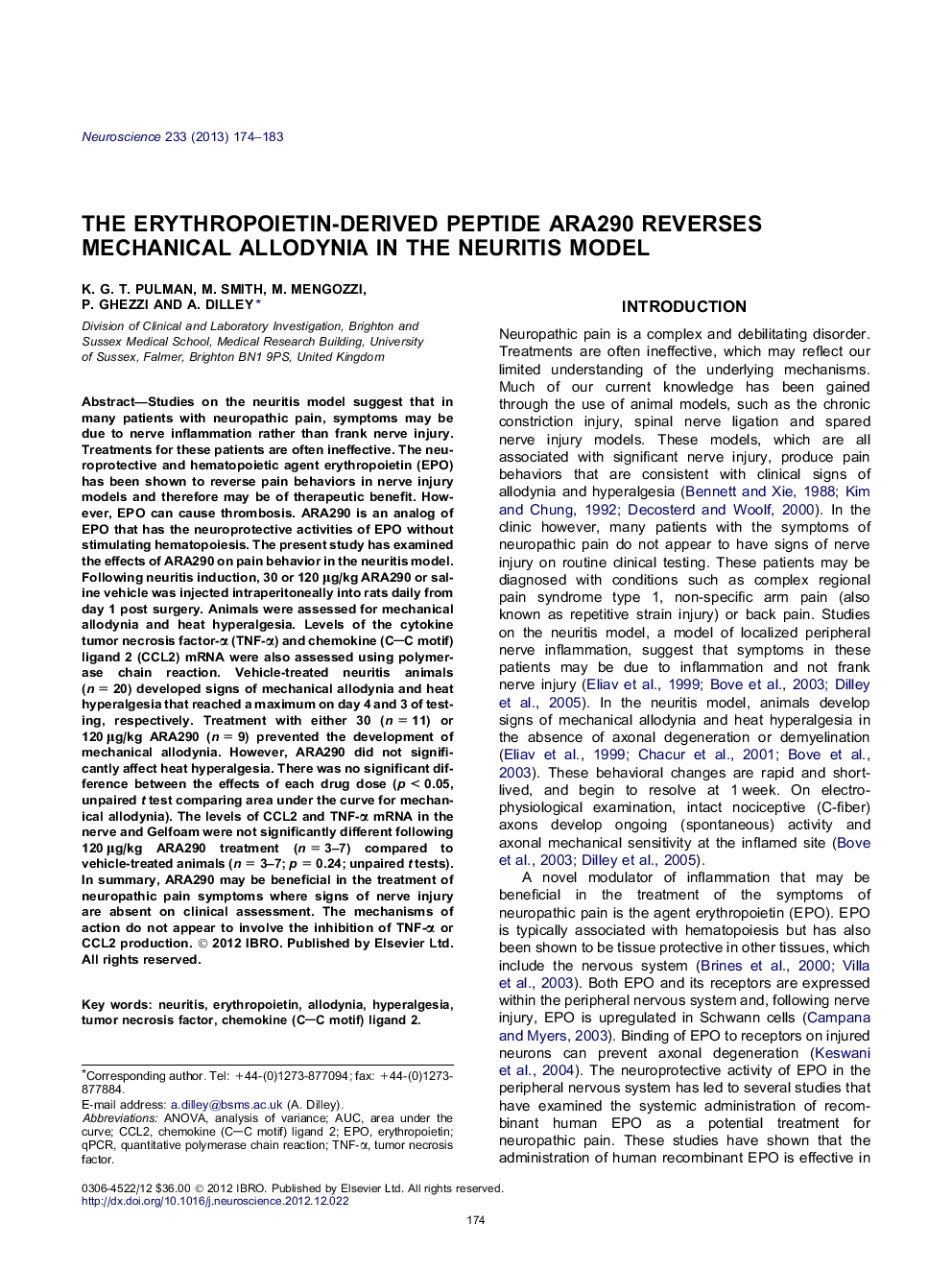| کد مقاله | کد نشریه | سال انتشار | مقاله انگلیسی | نسخه تمام متن |
|---|---|---|---|---|
| 4338073 | 1614843 | 2013 | 10 صفحه PDF | دانلود رایگان |

Studies on the neuritis model suggest that in many patients with neuropathic pain, symptoms may be due to nerve inflammation rather than frank nerve injury. Treatments for these patients are often ineffective. The neuroprotective and hematopoietic agent erythropoietin (EPO) has been shown to reverse pain behaviors in nerve injury models and therefore may be of therapeutic benefit. However, EPO can cause thrombosis. ARA290 is an analog of EPO that has the neuroprotective activities of EPO without stimulating hematopoiesis. The present study has examined the effects of ARA290 on pain behavior in the neuritis model. Following neuritis induction, 30 or 120 μg/kg ARA290 or saline vehicle was injected intraperitoneally into rats daily from day 1 post surgery. Animals were assessed for mechanical allodynia and heat hyperalgesia. Levels of the cytokine tumor necrosis factor-α (TNF-α) and chemokine (CC motif) ligand 2 (CCL2) mRNA were also assessed using polymerase chain reaction. Vehicle-treated neuritis animals (n = 20) developed signs of mechanical allodynia and heat hyperalgesia that reached a maximum on day 4 and 3 of testing, respectively. Treatment with either 30 (n = 11) or 120 μg/kg ARA290 (n = 9) prevented the development of mechanical allodynia. However, ARA290 did not significantly affect heat hyperalgesia. There was no significant difference between the effects of each drug dose (p < 0.05, unpaired t test comparing area under the curve for mechanical allodynia). The levels of CCL2 and TNF-α mRNA in the nerve and Gelfoam were not significantly different following 120 μg/kg ARA290 treatment (n = 3–7) compared to vehicle-treated animals (n = 3–7; p = 0.24; unpaired t tests). In summary, ARA290 may be beneficial in the treatment of neuropathic pain symptoms where signs of nerve injury are absent on clinical assessment. The mechanisms of action do not appear to involve the inhibition of TNF-α or CCL2 production.
Figure optionsDownload high-quality image (43 K)Download as PowerPoint slideHighlights
► The effect of an analog of erythropoietin, ARA290, on pain behaviors was assessed.
► The neuritis model, which involves localized peripheral nerve inflammation, was used.
► Systemic ARA290 administration reduced mechanical allodynia but not heat hyperalgesia.
► The mechanisms of action do not appear to involve effects on TNF-α or CCL2 production.
► ARA290 may be useful to treat neuropathic pain conditions with no overt nerve injury.
Journal: Neuroscience - Volume 233, 13 March 2013, Pages 174–183